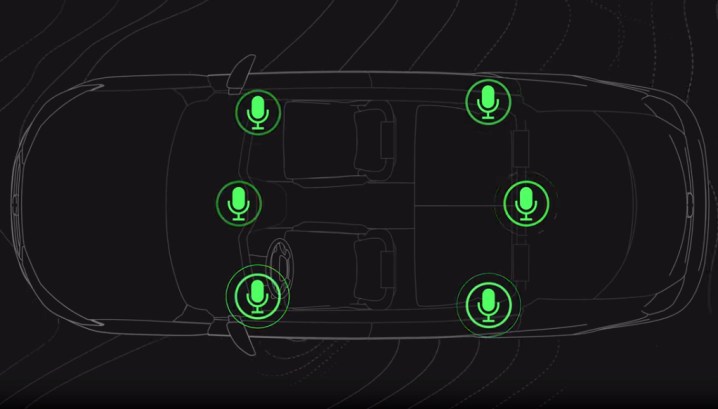If you find road noise annoying and tiresome at highway speeds, Bose introduced new technology at CES to help quiet your world in cars, trucks, and SUVs. Bose QuietComfort Road Noise Control (RNC) is the latest addition to the company’s menu of Active Sound Management solutions.
Bose now offers QuietComfort RNC to automotive manufacturers worldwide in addition to Bose Engine Harmonic Cancellation (EHC) and Engine Harmonic Enhancement (EHE), two technologies that sound like they’d cancel out each other. Actually, EHC diminishes undesirable engine noises, and EHE boosts desirable motor sounds.
QuietComfort RNC addresses a tougher acoustic challenge than engine noise. Rough roads, grooved concrete, noisy tires, and even tires formulated for quiet rides all contribute to in-cabin cacophony at high speeds.
More CES 2019 coverage
- Atlis emerges from stealth mode to promise an electric pickup truck
- Lamborghini packs more power into the 2020 Huracan Evo without forgetting tech
- Can Harley-Davidson’s electric LiveWire convince hog riders to go green?
- C-V2X system helps cars navigate intersection without a line of sight
Traditionally vehicle manufacturers packed on thick layers of insulation everywhere possible to dampen road noise, engine noise, and any other outside sounds. The relative quiet associated with luxury cars came with its own cost because insulation adds to vehicle weight at the expense of power and fuel economy. Fortunately, luxury cars usually had more power than average engines, and high fuel costs were accepted as part of the equation of a hushed interior.
Bose wrote the playbook on noise-canceling headphone technology, and Bose headphones found an eager market among frequent flying customers who sought refuge from airplane cabin sounds.
“For years, we’ve been asked why we can’t simply adapt our noise-canceling headphone technology to vehicle cabins for a quieter driving experience,” said John Feng, Bose Automotive manager of Active Sound Management Solutions. “But we know it’s much more difficult to control noise in a large space like a car cabin compared to the relatively small area around your ears. However, through research advances and our relentless efforts to solve tough problems, we’ve achieved a level of road noise reduction that sets Bose apart from competitive offerings.”

The QuietComfort RNC uses accelerometers, Bose signal-processing software, multiple microphones, and vehicle audio systems. Two systems work in coordination. The accelerometers measure vehicle vibration, and an array of microphones monitor the sound inside the sounds inside the vehicle. The signal processing software dynamically generates a cancellation sound played through the audio system based on the combined data from the accelerometers and microphones.
Bose expects QuietComfort RNC will be ready for vehicle production models in late 2021 for manufacturers who adopt the technology.
Editors' Recommendations
- Bose updates its top end with QuietComfort 45
- Bose debuts $280 QuietComfort Earbuds and $180 Sport Earbuds
- Hyundai Motor Group develops world’s first Road Noise Active Noise Control tech




